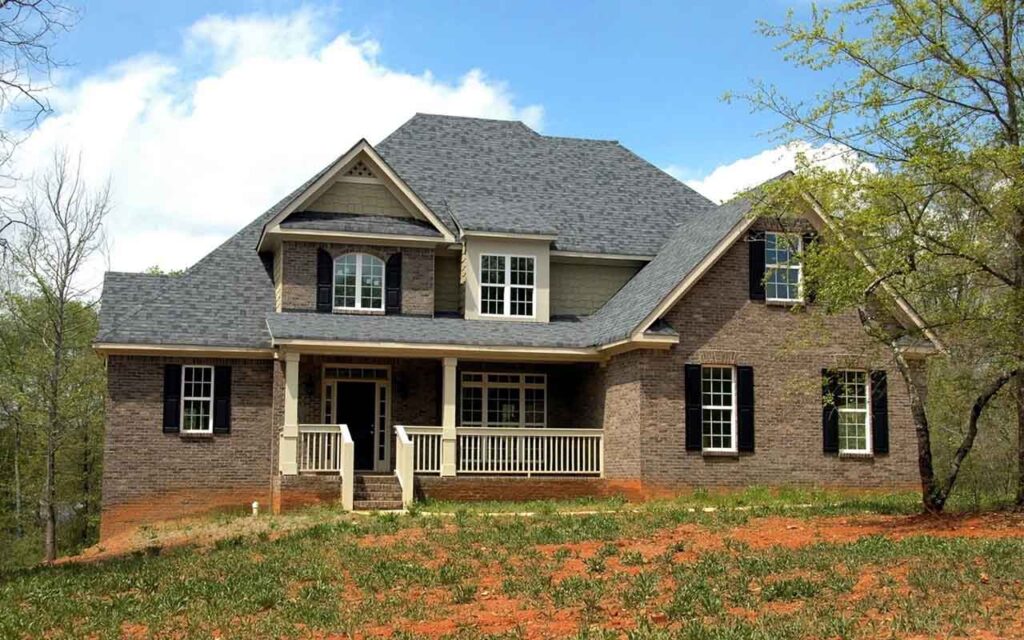Welcome to our comprehensive guide to commercial roofing! In this article, we aim to provide you with valuable insights and tips for choosing the right roofing solution for your commercial property. Whether you are a business owner or a property manager, it is crucial to understand the importance of a well-maintained and durable roof. A sturdy roof not only protects your investments but also ensures the safety and comfort of everyone inside. So, let’s dive into the world of commercial roofing and discover the key factors to consider when selecting the perfect roofing solution.
Assessing your roofing needs
Before delving into the various types of commercial roofing options available, it is essential to assess your specific roofing needs. Each commercial property is unique, and factors such as location, climate, building structure, and budget play a significant role in determining the right roofing solution. Here are some key points to consider:
1. Purpose and functionality
Understanding the purpose and functionality of your commercial building is crucial to selecting the appropriate roofing system. Are you running a warehouse, office space, retail store, or healthcare facility? Each business has different requirements, and the roof should align with those needs. For instance, a warehouse might require a roof that provides ample natural light, while a healthcare facility may need a roof capable of supporting additional equipment installations.
2. Durability and longevity
Commercial roofs are subject to constant exposure to the elements, so durability is paramount. Consider the lifespan of various roofing materials and their resistance to factors such as UV radiation, extreme temperatures, and severe weather conditions. Investing in a long-lasting roofing solution will save you from the hassle of frequent repairs or replacements in the future.
3. Energy Efficiency
With sustainability becoming increasingly important, energy-efficient roofing systems are gaining popularity. Energy-efficient roofs can help reduce utility costs by improving insulation and reducing heat transfer. Look for roofing materials with high thermal resistance, such as cool roofs or green roofs, which offer benefits like reduced energy consumption and a decreased carbon footprint.
4. Maintenance Requirements
Regular maintenance is crucial to extending the lifespan of any commercial roof. Consider the maintenance requirements of different roofing systems. Some materials may require more frequent inspections and repairs, while others offer low-maintenance options. It is essential to strike a balance between long-term maintenance costs and the expected lifespan of the roofing solution.
Exploring Roofing Materials
Now that we have discussed the key considerations for selecting a commercial roofing solution, let’s explore some popular roofing materials commonly used in commercial applications:
1. Built-Up Roofing (BUR)
Built-up roofing, often referred to as “tar and gravel” roofs, has been a staple in the commercial roofing industry for decades. BUR consists of multiple layers of bitumen (asphalt or coal tar) alternating with reinforcing fabrics. This roofing system provides excellent waterproofing capabilities and is known for its durability. BUR is a cost-effective option for flat or low-sloped roofs.
2. Single-Ply Membrane Roofing
Single-ply membrane roofing systems, including thermoplastic olefin (TPO) and ethylene propylene diene monomer (EPDM), have gained popularity in recent years due to their versatility and energy efficiency. These synthetic rubber or plastic membranes are lightweight, durable, and resistant to UV radiation and chemicals. They offer excellent flexibility and are suitable for a wide range of commercial roof applications.
3. Metal Roofing
Metal roofs have evolved beyond their traditional industrial aesthetic and are now commonly used in commercial buildings. They are available in various materials, such as steel, aluminum, and copper, each offering unique advantages. Metal roofing provides exceptional durability, longevity, and fire resistance. Additionally, it reflects sunlight, reducing the heat absorbed by the building and improving energy efficiency.
4. Modified Bitumen
Modified bitumen roofing systems are designed for buildings with low-slope or flat roofs. They consist of asphalt with added modifiers for enhanced performance and durability. Modified bitumen roofs are known for their excellent waterproofing properties and resistance to extreme weather conditions. They can be installed using various methods, including torch-applied, cold-applied, or self-adhesive.
5. Green Roofing
Green roofing, also known as vegetative roofing or eco-roofs, is a sustainable roofing solution gaining popularity in urban environments. These roofs are covered with vegetation, providing numerous environmental benefits such as improved air quality, reduced stormwater runoff, and enhanced insulation. Green roofs require specialized engineering and design considerations but offer long-term advantages in terms of energy efficiency and ecological impact.
Selecting the Right Roofing Contractor
Choosing the right roofing contractor is as crucial as selecting the appropriate roofing solution. A reputable and experienced contractor can ensure the successful installation, maintenance, and repair of your commercial roof. Here are a few factors to consider when selecting a roofing contractor:
- Experience and expertise: Look for a contractor with a proven track record in commercial roofing. Experience demonstrates their ability to handle diverse projects and ensures they are well-versed in industry best practices.
- Licenses and Certifications: Verify that the contractor holds the necessary licenses and certifications required to perform roofing work in your area. These credentials indicate their commitment to quality and compliance with industry standards.
- References and Portfolio: Request references from previous clients and review the contractor’s portfolio to assess the quality of their work. Contacting other businesses with similar roofing projects can provide valuable insights into the contractor’s reliability and workmanship.
- Insurance Coverage: Ensure that the contractor carries adequate liability insurance and workers’ compensation coverage. This protects you from potential liabilities in the event of accidents or property damage during the project.
- Warranty and Maintenance: Inquire about the warranty provided by the contractor and the available maintenance services. A reliable contractor should stand behind their work and offer ongoing support to keep your roof in optimal condition.
Conclusion
In conclusion, choosing the right roofing solution for your commercial property requires careful consideration of various factors such as purpose, durability, energy efficiency, and maintenance requirements. By assessing your specific needs and exploring the available roofing materials, you can make an informed decision that aligns with your goals and budget. Additionally, selecting a reputable roofing contractor ensures the successful execution of your project. Remember, a well-designed and properly installed roof not only enhances the aesthetics of your commercial building but also protects your investments and ensures the safety of everyone inside.

